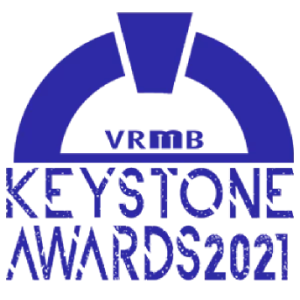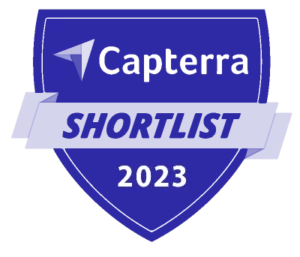In today’s digital age, having one’s own website is crucial for any vacation rental business or short-term rental homeowner. A high-quality website not only improves your visibility within the saturated vacation rental industry but also enhances the experience for potential guests and helps to drive bookings (especially direct bookings!). And by implementing effective SEO strategies, you can ensure that your property gets the attention it deserves. To help you make the most of your web page, we’ll explore some optimization strategies.
Key elements of a high-quality property management web page
Optimizing your website involves several key digital marketing strategies that can create a seamless user experience. Implementing these will only enhance the overall appearance of your vacation rental website but also improve its functionality and performance.
Mobile responsive design: It’s essential to ensure that your vacation rental website is mobile-friendly and adapts to different devices. A responsive design allows your site to automatically adjust its layout and content to provide an optimal viewing experience, regardless of the screen size and format. To ensure your vacation rental website is mobile-friendly, follow these tips:
- Use a responsive design that automatically adjusts to different screen sizes.
- Optimize images for faster loading on mobile devices.
- Ensure clickable elements, such as buttons and links, are large enough for easy tapping.
- Simplify your navigation menu for small screens.
- Make sure forms are easy to fill out on mobile devices.
Intuitive navigation: When potential guests visit your website, they should be able to find what they’re looking for quickly and easily. A well-organized and intuitive navigation menu with clear headings is crucial for guiding visitors to the information they need. By categorizing your content and using clear labels, you can help users navigate through your site effortlessly. This not only improves the user experience but also increases the chances of conversion.
Loading responsiveness: In today’s fast-paced world, people have little patience for slow-loading websites and are likely to abandon them to seek alternatives. Website speed plays a crucial role in user experience and search engine optimization. By reducing loading times, you can provide a smooth and seamless browsing experience for your potential guests. To improve website speed, consider implementing the following techniques:
- Compress images without compromising quality.
- Minify CSS and JavaScript files to reduce file sizes.
- Enable browser caching to store static files on visitors’ devices, reducing the need to fetch them from the server for each visit.
- Utilize a content delivery network (CDN) to distribute your web page’s content across multiple servers, improving loading speed for visitors from different locations.
Compelling page content: Content is king when it comes to engaging visitors and showcasing your vacation rental property. High-quality visuals, persuasive language, and detailed descriptions can make a significant impact on potential guests. By highlighting the unique features and benefits of your property, you can capture the attention of your target audience and entice them to book with you. Additionally, regularly updating your content with fresh search terms and relevant information can leverage Google search and Bing algorithms and help increase your organic traffic.
Incorporating social media links: Including your social media accounts as internal links on your web page (and when possible, using your website’s backlinks on social media platforms as well) allows for seamless navigation and is an essential component of your vacation rental business’ marketing strategy. Using linkable social media logos on your site also legitimizes your business for potential guests.
Effective CTAs (bookings!): Once visitors land on your website, it’s crucial to guide them towards the desired actions (ideally booking, or contacting you). Strategically placing internal links throughout your site can encourage visitors to take these actions. Whether it’s a prominent “Book Now” button or a well-placed “Contact Us” link, effective call-to-actions (CTAs) can significantly increase your conversion rate.
Remember, your website is the virtual storefront of your vacation rental business, so investing time and effort into optimizing it is crucial for your success.
Visual considerations to enhance the user experience
Website design is a critical component of user experience. A visually appealing and user-friendly design helps create a positive impression and encourages visitors to explore further. When it comes to website design, there are several key elements to consider.
Layout: For the best user experience, your website should be clean and organized. A cluttered and confusing site can overwhelm visitors and make it difficult for them to navigate. Your menu structure should be equally clear and organized to help visitors locate what they’re seeking.
Branding: Your vacation rental business’ visual branding should be prominent and consistent throughout your website. Color scheme and typography play a significant role in user experience while fonts can impact readability and accessibility.
Images and multimedia: High-quality photographs and multimedia videos can greatly enhance the user experience. Visual elements can capture attention and convey information more effectively than text alone.
Investing in professional web design services or utilizing website builders can help you achieve a polished and visually appealing site that aligns with your branding. These services often provide templates and design tools that make it easier for you to create a stunning website without the need for extensive coding knowledge.
SEO strategies to optimize your vacation rental website
When it comes to optimizing your, keyword research and implementation is fundamental to a successful SEO strategy. Let’s take a look at some useful SEO tips.
Keyword research, implementation, and watch-outs
Keyword research forms the foundation of your SEO efforts. It involves identifying relevant keywords and long-tail keyword search terms that your target audience might use when researching vacation rentals in your area. By incorporating these keywords naturally throughout your website’s content, including headers, paragraphs, meta descriptions, and tags, you can increase your website’s visibility in search engine results.
However, it’s important to strike a balance and avoid keyword stuffing. Search engine algorithms penalize web pages that engage in such practices, so it’s crucial to use the right keywords in a way that feels organic, adds value to your content, and ensures your website ranks.
Vacation rental SEO strategies
On-page SEO techniques play a vital role in improving your website’s visibility in search engine results. By optimizing various elements on your web page, you can enhance its overall performance and attract more organic traffic. Here are some key on-page SEO tips:
- Write unique, relevant meta descriptions and page titles: Crafting compelling meta titles and descriptions helps search engines understand the content and purpose of your pages, thus improving your website’s SEO.
- Use heading tags and title tags to structure your content: When building your site, it’s important to know that heading and title tags only make your content more readable for users but also help search engines understand the hierarchy and importance of different sections on your web page.
- Adding alt text to tag your images: Alt text provides alternative descriptions for your images. By including relevant keywords in your tags, you can make your images more accessible to search engines and improve your website’s overall SEO.
- Internal linking for better navigation and SEO: Internal linking refers to linking pages within your website. This not only helps users navigate your site more easily but also allows search engines to discover and index more of your content, ultimately enhancing the overall SEO of your web page.
Conclusion
By implementing these web page optimization and SEO tips, you can drive more organic traffic, improve user experience, increase your short-term rental web page’s visibility in search engine results, and boost your bookings. As part of your overall online marketing strategy, take the time to analyze your website’s traffic and make adjustments as needed to stay ahead of the competition and provide an outstanding online experience for potential guests.







